If there’s one thing we know about birds, it’s this: take care of them, and they’ll take care of you.
Birds are considered “beneficial” animals because they help pollinate flowers and feast on pests we don’t want in our gardens.
And while most other beneficial creatures – bees, ants, bats, small mammals – tend to vanish this time of year, there are still plenty of birds around.
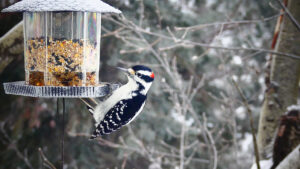
In New Jersey, these birds include cardinals, sparrows, robins, goldfinches, black-capped chickadees and downy woodpeckers, to name a few.
What do these birds have in common? They’d all appreciate some dinner. Here are some ways to make sure the birds visiting your backyard winter bird feeders get fed this winter.
Keeping your feeders safe in winter
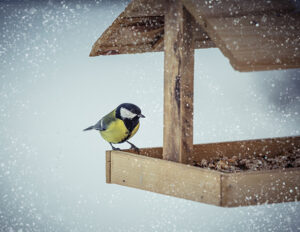
Winter bird feeders should have a wide cover that extends several inches over the edge of the feeder, so the seed doesn’t get buried by snow storms.
Winter bird feeders should be placed in a sheltered spot to protect them from the wind. Placing them near a hedge or brush pile can also help keep the birds safe from predators.
You may want to invest in a larger capacity birdfeeder for winter so you won’t need to add new seed as often. Just ensure the seed stays protected from moisture to prevent mold or fungus from forming.
What should I feed the birds in my yard?
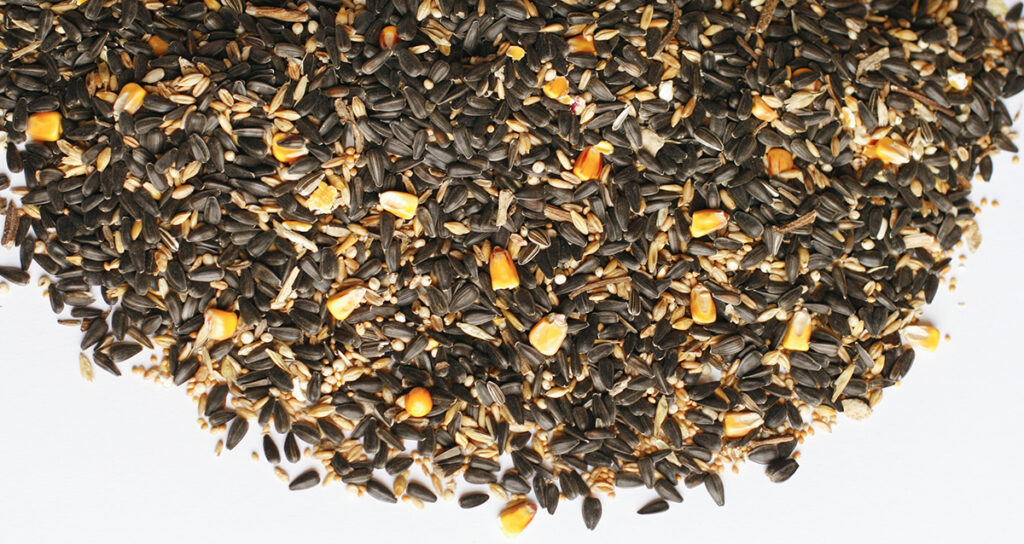
Have you ever been with a group of friends trying to decide where to have dinner? It can be tough. One person is in the mood for Italian, someone else is craving sushi, etc.
Get a group of birds together and you’d probably see something similar occur. Different species have different tastes when it comes to birdseed.
Here are a few different bird seed types you might want to consider based on the types of birds flocking to your yard:
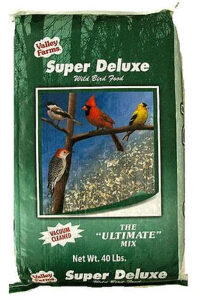 Safflower – Sparrows, doves, chickadees, and grosbeaks prize these thick-shelled seeds, but they must stay dry. They become inedible when they get wet.
Safflower – Sparrows, doves, chickadees, and grosbeaks prize these thick-shelled seeds, but they must stay dry. They become inedible when they get wet.- Black-oil sunflower seed – We’ve written before that this seed is known as “hamburger” for birds, in that pretty much any type of bird will eat it.
- Nyjer – Once known as “Niger seed” for the African country where it was born, this bird seed type is popular among goldfinches, pine siskins, indigo buntings and redpolls. You might see Nyjer sold as thistle, although it isn’t related to thistle plants.
- Peanuts – Birds like jays, cardinals, finches and woodpeckers are all big fans of peanuts. Unfortunately, so are other animals, including deer, bears and raccoons. Serve these in small amounts and keep them dry; wet peanuts can produce harmful toxins.
- Cracked corn – As with peanuts, cracked corn should be kept dry and served up in small amounts to prevent toxins and curious animals.
- Fruit – Think of this as dessert for your birds, as robins, orioles and bluebirds all enjoy dried fruit and raisins. Some birds will even eat fresh slices of fruit.
- Suet – In addition to the different bird seed types, birds enjoy suet, which offers an excellent source of fat. You can usually get it from your local butcher and serve it in a mesh onion bag.
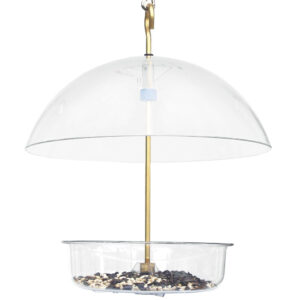
Visit one of our three New Jersey locations today! We’ll help you make sure your feathered friends are well-fed this winter.

